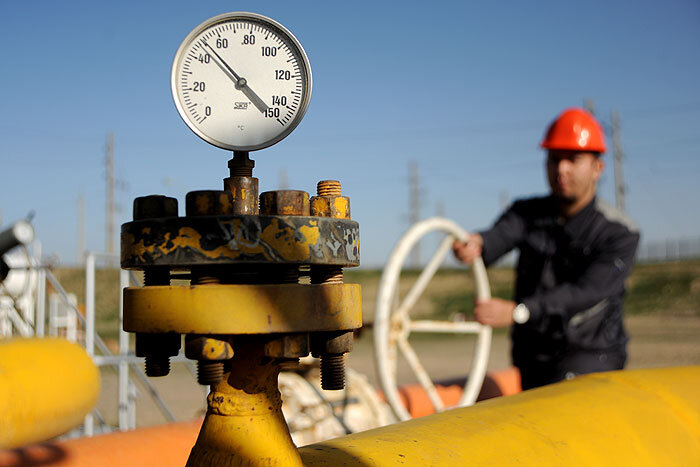Knowledge-based firms fully supported in developing gas storage facilities

TEHRAN- The current Iranian calendar year 1401 (began on March 21) is titled “Knowledge-Based and Job-Creating Production”.
In line with materializing the motto of the year, Oil Ministry and all of its subsidiaries have announced strong determination and prepared plans to this end.
National Iranian Gas Company (NIGC), as one of the four major subsidiaries of Oil Ministry, plays an important part in materialization this slogan.
As Majid Chegeni, the managing director of the company, has said, the activity of the gas industry is directly related to the issues of production and employment; because almost all industries in the country are dependent on gas energy, so the role of the NIGC personnel is highlighted in this due.
Emphasizing that supporting the knowledge-based companies is a main policy of the NIGC, the official has recently said, “We must use the knowledge-based and efficient capacities of the country's science and technology sector for domestic development and progress. The fact is that our country does not need anything from outside and we can provide many of our needs internally”.
NIGC is one of the executive organizations that has taken good actions in the field of creating added value and using new technologies, and this important thing will continue with the cooperation of knowledge-based companies, he reiterated.
One important area of the NIGC’s activities is related to development of the country’s underground gas storages (UGS).
Iran currently has two major natural gas storage facilities in Sarajeh and Shourijeh, in which every year the National Iranian Gas Company stores the gas received from gas refineries all over the country to be used in the colder months of the year.
As announced in late June by the managing director of Iran Gas Engineering and Development Company (IGEDC), 14 gas storage facility development projects are currently underway across the country.
Reza Noshadi also informed that about 25 percent of the gas needed inside the country will be supplied from the underground gas storage (UGS) facilities by the next five years.
According to the official, in addition to the geographical distribution of the mentioned projects all around the country, they also have unique features in terms of the required technology and complexity of operations.
Storage in a salt dome and water reservoir are two of the mentioned projects which are being conducted for the first time in the country, he added.
“The development of such fields significantly improves the skills of Iranian engineers and leads to the integration of knowledge and technology in the country, so we need to attract experts and experienced engineers to manage and implement these strategic projects,” Noshadi stated.
Following the development of the South Pars gas field and the increase in the country’s gas production capacity, the construction and development of the country’s natural gas storage facilities have become a top priority.
In this regard, Oil Ministry has been following a comprehensive plan to increase the country’s natural gas storage capacity to 6.5 billion cubic meters (bmc) by the Iranian calendar year 1402 (starts in March 2023). The country’s current gas storage capacity stands at 3.25 bcm.
To materialize the goal of increasing the country’s natural gas storage capacity and also the motto of this year, the NIGC has put benefiting from the capabilities of the knowledge-based companies in this field on agenda.
As stated on Tuesday by the operator of the project to store gas in Shourijeh UGS (in the northeastern Khorasan Razavi province), Iran Gas Engineering and Development Company, in continuing to support knowledge-based companies, considers trust in domestic manufacturers to be the essential element in the domestic production of strategic equipment, and by planning and implementing targeted programs, it is determined to domestically produce the equipment needed in the Shourijeh project.
Referring to the all-round support of the IGEDC to the country's knowledge-based companies and technological capacities, Saeed Rajabzadeh said: “Three Ukrainian turbocompressors were used in the first phase of Shourijeh UGS, but in the development phase, we intend to manufacture the three required machines and these turbocompressors inside the country by relying on domestic technical-industrial capacities.”
Stating that advanced compressors are used in this project, which have not been produced in such a volume in the country, he clarified that if the plans are realized and the manufacturing is successful, the country will not need to import these sensitive and advanced equipment in future projects.
Leave a Comment